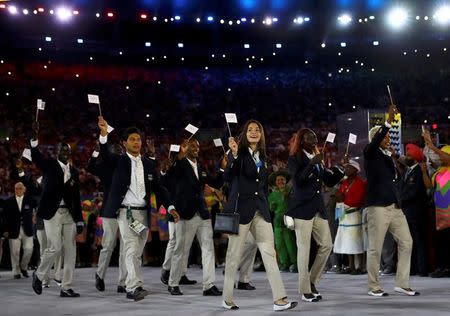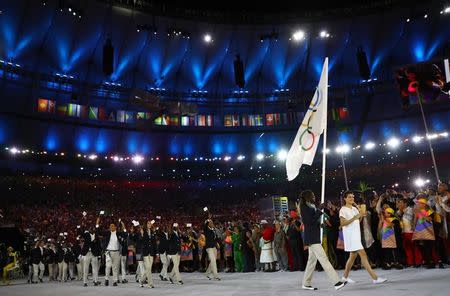IOC undecided over refugee team for Tokyo 2020 Games
By Karolos Grohmann LAUSANNE, Switzerland (Reuters) - The newly-formed refugee team competing at this year's Olympics was one of the highlights in Rio de Janeiro but it is not clear if it will compete at the 2020 Games in Tokyo, the International Olympic Committee (IOC) said on Tuesday. The IOC unveiled its first team of refugees in June in an effort to raise awareness of the issue and it was one of the feel-good stories of the Rio Olympics. But it has yet to decide whether to send another refugee team to Tokyo in four years time. "We will see. The team in Rio was to remind the world of the situation (of refugees)," Pere Miro, the IOC's Deputy Director General for Relations with the Olympic Movement, told reporters. "(For Tokyo) this has not yet been decided. To have a team in Rio was not an objective in itself but a means to put this problem to the world," Miro said. "We will now go step by step." The 10-member refugee team, hand-picked by the IOC, hogged the spotlight after marching as the penultimate team before hosts Brazil in the Opening Ceremony at the Olympic stadium on Aug. 5. More than a million refugees streamed into Europe in the past year alone as they fled fighting in Syria and other countries. Millions more are housed in camps in countries across the world, having escaped dozens of wars or armed conflicts in their home nations. The Refugee Olympic Team (ROT) included five athletes from South Sudan, two from Syria, two from Democratic Republic of Congo and one from Ethiopia. Miro said although a decision on Tokyo had yet to be taken, all national Olympic committees had been tasked with locating any potential Olympians among refugees living in their countries. As for the 10 refugees who took part in Rio, Miro said the IOC would continue supporting them in their quest for sporting achievement or just a normal life away from war and violence. "We have not abandoned the 10 athletes," he said. "We continue working with them. We have the duty to continue working with them." (Editing by Ed Osmond)

 Yahoo News
Yahoo News 


